Journalism Awards
Each year, the Nieman Foundation presents journalism awards that honor outstanding work in several categories. Many of the winning reports have led to important reforms and corrective legislation.
The Louis Lyons Award for Conscience and Integrity in Journalism
The Louis M. Lyons Award for Conscience and Integrity in Journalism recognizes the work of courageous journalists and journalism organizations around the world. Nieman Fellows in the class of 1964 established the award to honor the Nieman curator who retired that year and winners are chosen by fellows during their Nieman year at Harvard.
2021 Winner
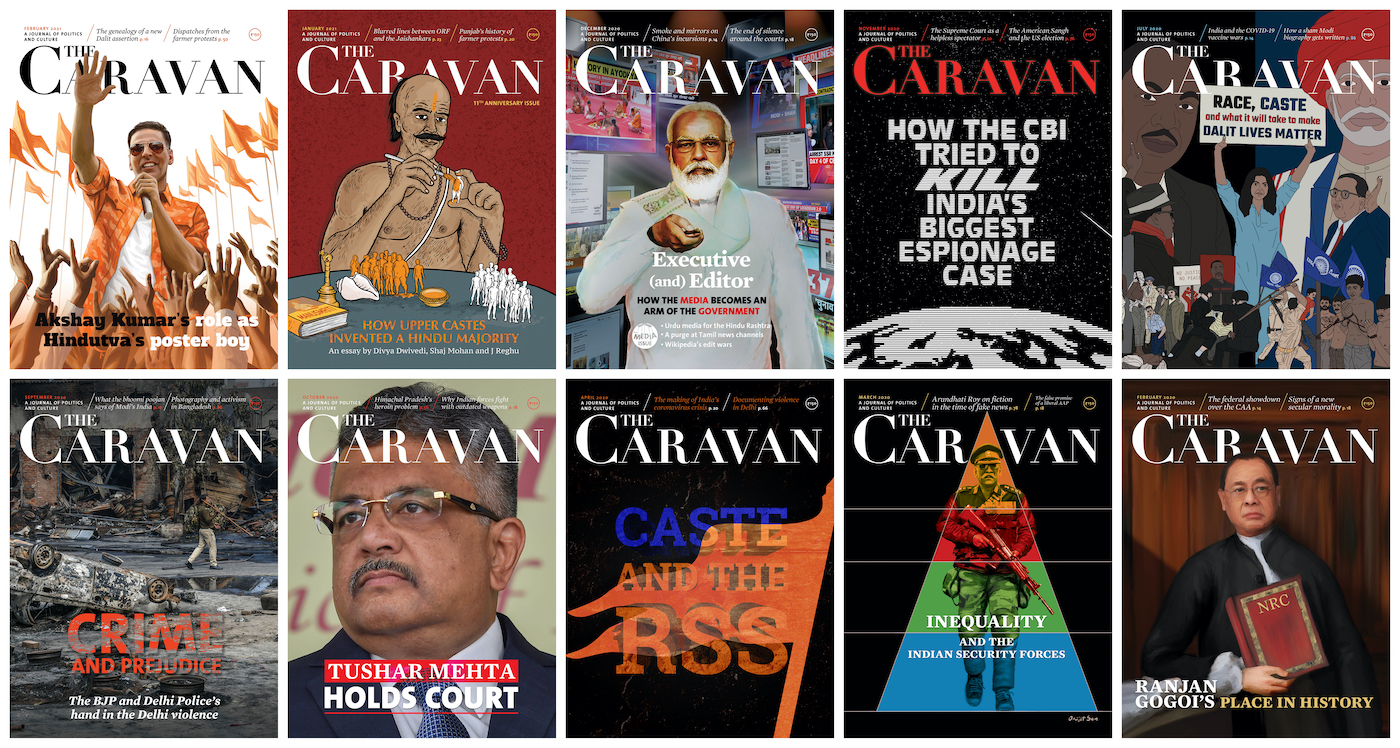
The Caravan, a journal of politics and culture in India, is the winner of the 2021 Louis M. Lyons Award for Conscience and Integrity in Journalism
The Nieman class of 2021 chose the Indian politics and culture magazine The Caravan for the Lyons Award for “its unique and uncompromising coverage of the erosion of human rights, social justice, and democracy in India.” In making their selection, the fellows noted that the publication’s coverage of nationwide farmers’ protests attracted the ire of Prime Minister Narendra Modi’s government, which attempted to shut down the magazine’s social media accounts and brought sedition charges against multiple Caravan employees.
The Caravan has persistently spoken truth to power while documenting the rise of political Hinduism in the country over the past decade. Risking violence and imprisonment, its reporters have written an essential series of investigations into Hindu supremacist terrorism, political murder, caste and gender injustice, and ethnic violence against India’s Muslim minority
- Read the press release
- Read “The Modi Government, The Caravan Magazine, and the State of the Free Press in India” in Nieman Reports — Excerpts from a conversation with Caravan executive editor Vinod Jose and political editor Hartosh Singh Bal
Worth Bingham Prize for Investigative Journalism
Established in 1967, the annual $20,000 Worth Bingham Prize for Investigative Journalism honors investigative reporting of stories of national significance where the public interest is being ill-served.
2020 Winner
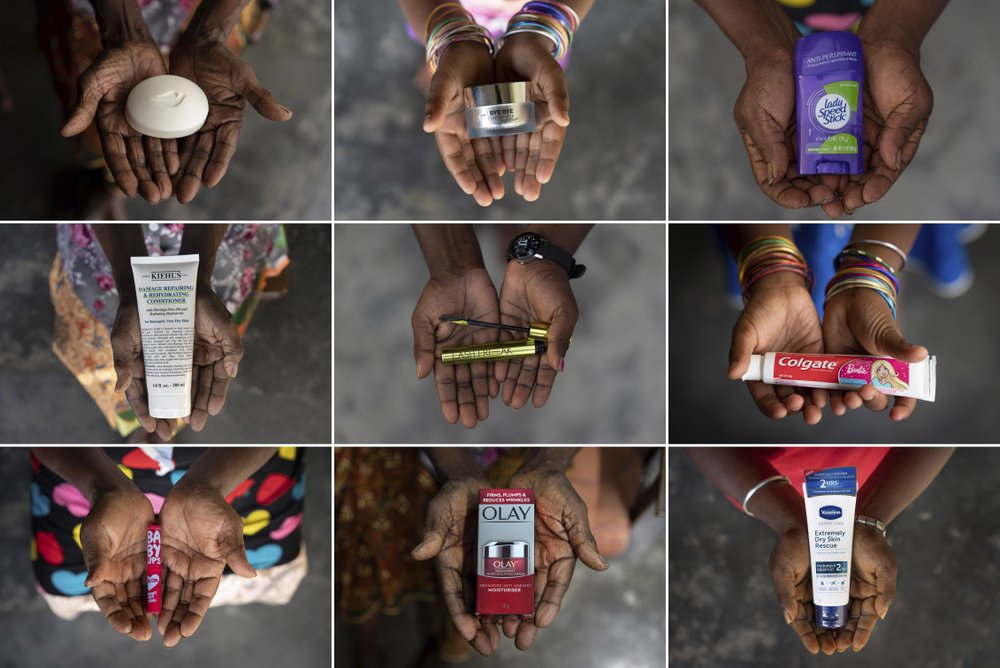
This combination of November 2020 photos shows the hands of five generations of women from a family that has worked on the same palm oil plantation since the early 1900s, ranging in age from 6 to 102. They each hold products made by iconic Western companies that source palm oil from Indonesia and Malaysia.
The Associated Press is the winner of the 2020 Worth Bingham Prize for Investigative Journalism for “Fruits of Labor,” an exhaustive two-year investigation by Associated Press reporters Margie Mason, a 2009 Nieman Fellow, and Robin McDowell into widespread abuses in the palm oil industry. The reporters examined the dangerous conditions laborers face on large palm oil plantations in Indonesia and Malaysia by interviewing more than 130 current and former workers from eight countries at two dozen companies. They revealed an industry in which poor and vulnerable harvesters are regularly exposed to toxic agrochemicals and face serious hazards ranging from trafficking and rape to child labor and slavery.
The reporters additionally linked the palm oil fruits harvested by workers to the supply chains of some of the world’s largest food and cosmetic companies — manufacturers that use the crop to produce roughly half the consumer products available on supermarket shelves today. The reporting led to congressional oversight and an import ban.
“Fruits of Labor” also won a 2020 IRE Award, the 2021 Selden Ring Award for Investigative Reporting and reporters Mason and McDowell were chosen as Pulitzer Prize finalists in the investigative reporting category
Taylor Family Award for Fairness in Journalism
The Taylor Award for Fairness in Journalism honors balanced and impartial news coverage by American journalists and news organizations. Members of the Taylor family, who published The Boston Globe from 1872 to 1999, established the $10,000 award in 2001. Finalists receive $1,000 each.
2020 Winner
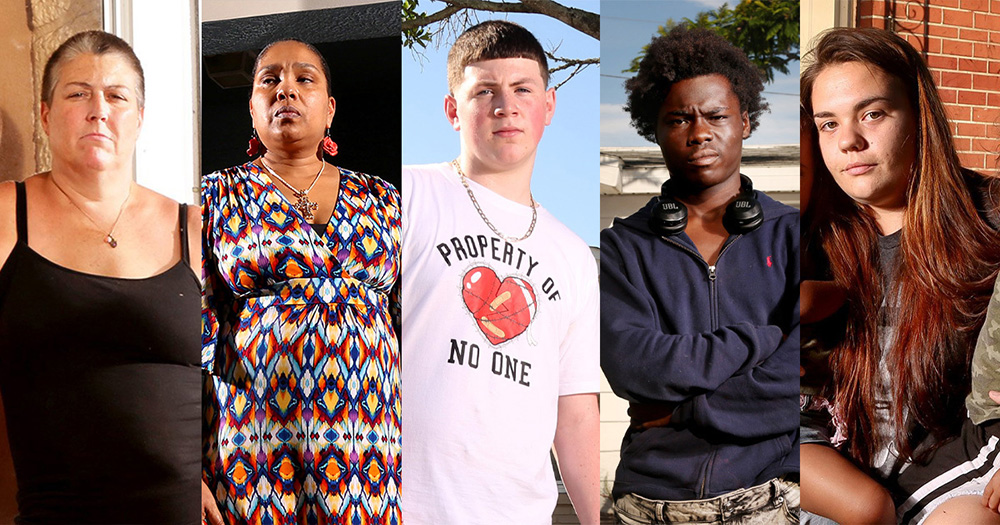
The Tampa Bay Times “Targeted” investigation exposed a police intelligence operation run by the Pasco County, Florida, sheriff’s office that monitored and harassed residents based on their potential to commit crimes, often without probable cause or evidence of wrongdoing.
“Targeted,” the Tampa Bay Times’ in-depth investigation by into a police program that for years monitored, intimidated and harassed families in Pasco County Florida, is winner of the 2020 Taylor Family Award for Fairness in Journalism.
The reporting by Kathleen McGrory and Neil Bedi revealed that the Sheriff’s Office in Pasco County, Florida, created a secretive data-driven system to proactively combat crime. The algorithm instead was used to try to predict which residents might break the law. The sheriff’s department used that information to target nearly 1,000 people and assigned deputies to repeatedly show up at their homes, often without probable cause, a warrant or evidence of a crime. McGrory and Bedi also won the local news Pulitzer for their series.
Two other entries were selected as finalists for the Taylor Award:
- “Grace: A Failure in Michigan’s Juvenile Justice System,” a ProPublica series that investigated the case of a 15-year-old Black girl who was jailed for not doing her schoolwork and the deeply flawed juvenile justice system that allowed her detention.
- “Torn Apart,” a USA TODAY series that showed how the state of Florida used a child protection law to take children from families, often without sufficient cause, and put them directly in harm’s way in a poorly monitored foster care system.
- Read the press release
I.F. Stone Medal for Journalistic Independence
Established in 2008, the I.F. Stone Medal for Journalistic Independence recognizes journalistic independence and honors the life of investigative journalist I.F. Stone. The award is presented annually to a journalist whose work captures the spirit of independence, integrity and courage that characterized I.F. Stone’s Weekly, published from 1953 to 1971.
2021 Winner
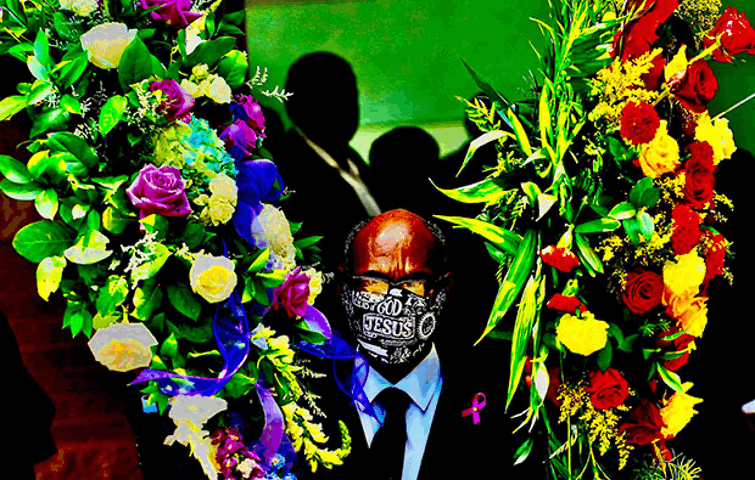
A montage of photos by Eli Reed
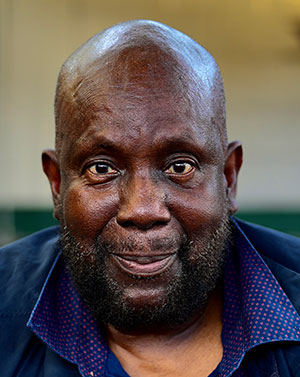
Eli Reed
Photojournalist Eli Reed, a 1983 Nieman Fellows, is winner of the 2021 I.F. Stone Medal for Journalistic Independence. For half a century, his photography has captured the face of racism in the U.S. and documented human suffering in conflicts around the world, from Beirut and Central America to Africa and beyond. Announcing the award, I.F. Stone Medal jury chair Ricardo Sandoval-Palos said: “There is a depth to Reed’s reporting that organized strings of words cannot reach. Photography as investigative journalism combines art and science as an effective tool to engage the public and deliver the truth. It was our unanimous decision that Reed’s incisive work has done visually what I.F. Stone did with words over so many years. And like Stone, Reed is no detached observer. He is fiercely independent, a passionate seeker of truth and dedicated to fighting for social justice.”

(From left) Bernice Yeung, Michael Riley and Jasmine Brown
The Nieman Foundation added three new members to the I.F. Stone Medal selection committee in 2021: Bernice Yeung, a ProPublica reporter who focuses on labor and employment; Michael Riley, an investigative reporter for Bloomberg News and Businessweek magazine; and Jasmine Brown, a senior producer in the race and culture unit at ABC News’ “World News Tonight with David Muir” and a 2020 Nieman Fellow. They joined members Myra MacPherson, author of “All Governments Lie: The Life and Times of Rebel Journalist I.F. Stone,” Phillip W.d. Martin, a senior investigative reporter for WGBH News, and chair Ricardo Sandoval-Palos, public editor at PBS.
J. Anthony Lukas Prize Project Awards
Established in 1998, the Lukas Prize Project honors the best in American nonfiction writing. Co-administered by the Columbia University Graduate School of Journalism and the Nieman Foundation, the project is sponsored by the family of the late Mark Lynton, a historian and senior executive at the firm Hunter Douglas in the Netherlands.
The 2020 J. Anthony Lukas Book Prize ($10,000)
-
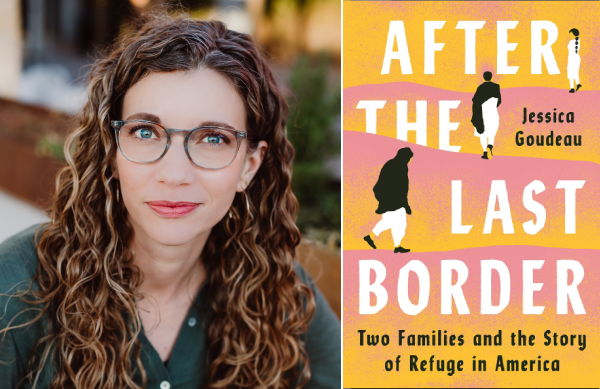
Jessica Goudeau and her book "After The Last Border"
Winner: Jessica Goudeau, a writer who served as a Mellon Writing Fellow and interim Writing Center director at Southwestern University, won for “After the Last Border: Two Families and the Story of Refuge in America” (Viking), which situates a dramatic, character-driven story within a larger history — the evolution of modern refugee resettlement in the United States, beginning with World War II and ending with recent closed-door policies.
-
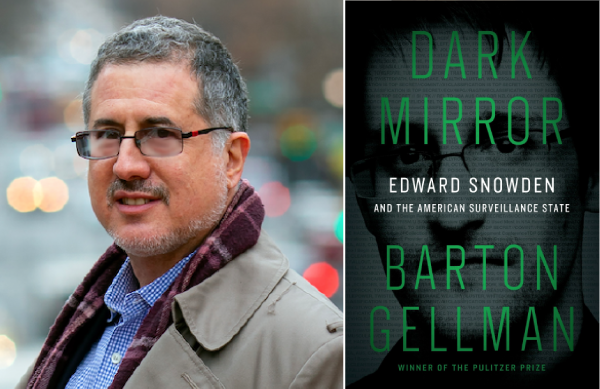
Barton Gellman and his book "Dark Mirror"
Finalist: Barton Gellman, a Pulitzer Prize-winning journalist, staff writer at The Atlantic, and senior fellow at the Century Foundation in New York, was named a finalist for “Dark Mirror: Edward Snowden and the American Surveillance State” (Penguin Press), the definitive master narrative of Edward Snowden and the modern surveillance state, based on unique access to Snowden and groundbreaking reportage around the world.
The 2020 J. Anthony Lukas Work-In-Progress Awards (two $25,000 prizes)
-

Emily Dufton
Winner: Emily Dufton, a writer, drug historian, and researcher based near Washington, D.C., won for “Addiction, Inc.: How the Corporate Takeover of America’s Treatment Industry Created a Profitable Epidemic” (University of Chicago Press). Her book traces the complex histories of the medications that are considered the gold standard in treating opioid addiction and addresses the pressing questions of why these half-century-old medications are still the primary way we’re confronting an epidemic that killed over 81,000 people last year.
-
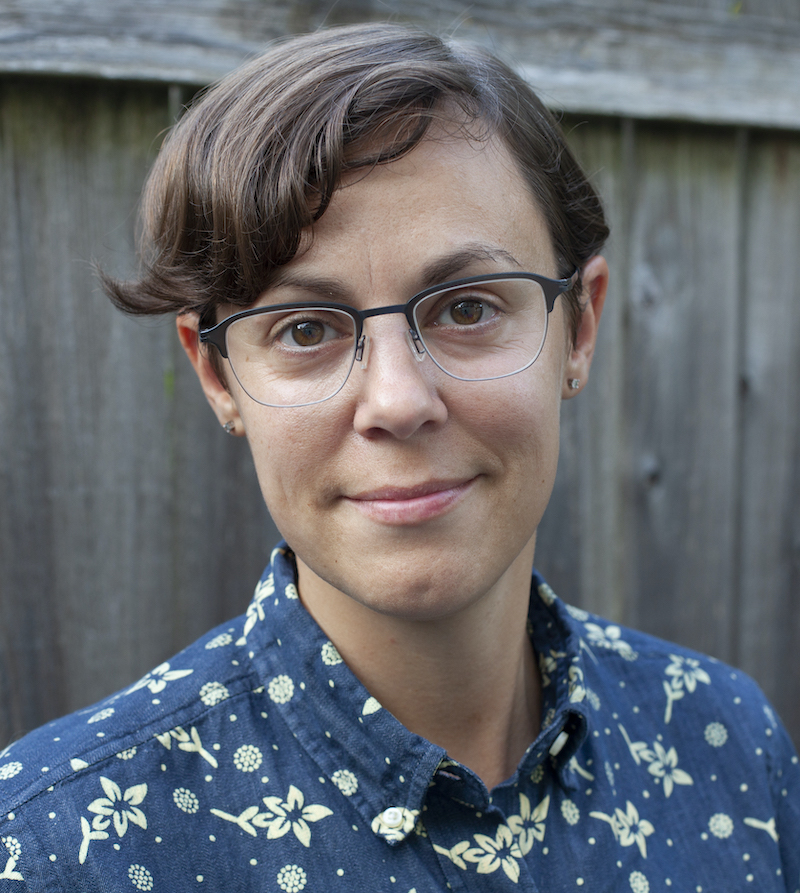
Casey Parks
Winner: Casey Parks, a freelance reporter who covers people, poverty, and education, won for “Diary of a Misfit” (Knopf). When Parks came out as a lesbian, she assumed her life in the rural South was over. Her mother shunned her, and her pastor asked God to kill her. But then Parks’ grandmother, a stern conservative who grew up picking cotton, told Parks the story of Roy Hudgins, a transgender country singer who was allegedly kidnapped as a baby. Part memoir, part investigative reporting, Diary of a Misfit is the story of the decade Parks spent trying to unravel the mysteries of Hudgins’ life, all the while confronting ghosts of her own.
The 2020 Mark Lynton History Prize (two $10,000 winners in 2019)
-
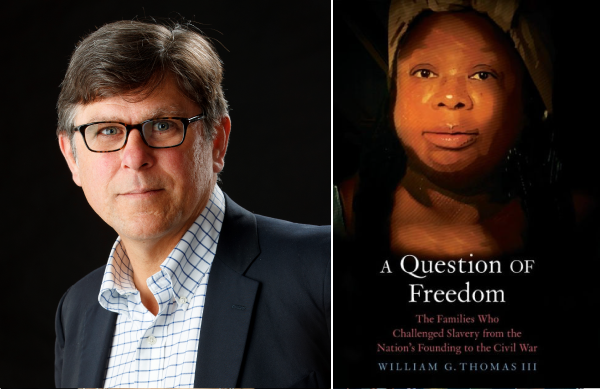
William G. Thomas III and his book "A Question of Freedom"
Winner: William G. Thomas III, author, historian, and the John and Catherine Angle Chair in the Humanities and professor of history at the University of Nebraska, has won for “A Question of Freedom: The Families Who Challenged Slavery from the Nation’s Founding to the Civil War” (Yale University Press). Thomas tells an intensely human and intricate story about the enslaved families of Prince George’s County, Maryland, who filed hundreds of suits for their freedom against a powerful circle of slaveholders, beginning with the Jesuit priests who owned some of the largest plantations in the nation and founded a college at Georgetown on the Potomac River.
-
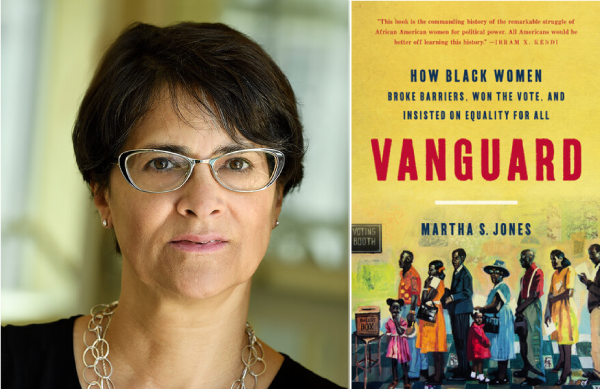
Martha S. Jones and her book "Vanguard"
Finalist: Martha S. Jones, an author, historian and the Society of Black Alumni Presidential Professor, professor of history, and a professor at the SNF Agora Institute at Johns Hopkins University, has been named a finalist for “Vanguard: How Black Women Broke Barriers, Won the Vote, and Insisted on Equality for All” (Basic Books), which offers a new history of African American women’s political lives in America. She recounts how they defied both racism and sexism to fight for the ballot, and how they wielded political power to secure the equality and dignity of all persons.
